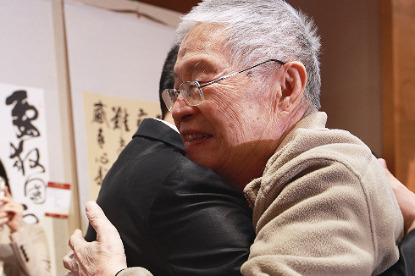Revised policies boost Guangdong women's rights in digital era

Guangdong province has taken a pioneering step in ensuring gender equality in the digital field with the recent adoption of revised measures for women's rights protection.
The Standing Committee of the 14th Guangdong Provincial People's Congress voted on Oct 11 to adopt the revised Measures for the Implementation of the Law of the People's Republic of China on the Protection of Women's Rights and Interests in Guangdong Province, which will take effect on Jan 1.
The revised measures have been expanded from the original nine chapters and 46 articles to nine chapters and 59 articles. They focus on key and challenging issues in protecting women's rights and interests, improving relevant systems and transforming effective provincial practices into institutional norms.
In safeguarding women's equal rights and interests in the digital era, Article 30 of the measures stipulates that women's digital literacy education will be strengthened, enhancing their ability to select, evaluate and effectively utilize media information.
The article requires State departments, enterprises, public institutions and mass organizations to promote gender equality in digital fields such as data and personal information processing, automated decision-making and algorithmic recommendation services.
This represents the country's first legal provision to systematically regulate gender equality in the digital sphere within women's rights protection legislation.
The measures specify requirements for internet platforms to eliminate gender bias in algorithm designs for tasks such as order distribution and compensation calculations. They also require platforms to conduct digital skills training to help women bridge the "digital divide", which is a proactive response to challenges posed by technological development to women's rights protection.
The measures further state that no organization or individual may use the internet to infringe upon women's legitimate rights and interests. Women who suffer from online infringement have the right to demand that internet product and service providers cease the infringing acts.
Guangdong is a major hub for the internet industry, with a large number of web-related enterprises and a substantial workforce, said Wang Biaochen, deputy director of the rights and interests department with the Guangdong Women's Federation.
"Emerging fields, including algorithmic technology, may impact both industry practitioners and service users, even potentially infringing upon their rights and interests, "she said. "Therefore, we aim to establish proactive provisions through legislation to address these challenges."
Wang cited a case about "algorithmic discrimination" last year. In Hangzhou, Zhejiang province, a 26-year-old female programmer surnamed Lin sued a tech company for emotional distress after failing three consecutive interviews.
Lin said she discovered the company's system automatically flagged female resumes with "emotional instability risk". The company had developed an AI interview system in which male executives comprised 87 percent of the training data, and female candidates had a 42 percent lower pass rate than males.
Although the company argued that "the algorithm had no subjective malice", the court invoked China's Personal Information Protection Law and ruled that biased training data resulted in a discriminatory result. The company was ordered to remove gender-related parameters, retrain the model and issue a public apology.
Wang Tianyu, head of the social law office with the Institute of Law, which is part of the Chinese Academy of Social Sciences, said that relevant platforms should recognize women as a distinct group with specific protection needs and increase investment in areas such as child care and welfare.
Efforts should be made to guide technology toward having a positive social impact, transforming women's unique characteristics into competitive advantages on platforms.
"For instance, some ride-hailing platforms prioritize matching female passengers with female drivers during nighttime hours — a case that demonstrates how gender-specific considerations can be leveraged as operational strengths, "Wang said. "We need to make algorithms more humane, and the content used to 'feed' them is crucial. In the development of artificial intelligence, technical parameters should be adjusted to provide precise work arrangements for women as a distinct group."
The measures also highlight institutional innovation in the Guangdong-Hong Kong-Macao Greater Bay Area. They stipulate the enhancement of cooperation with Hong Kong and Macao in the field of women's rights protection, promote exchanges between women's organizations and groups in the three regions, and facilitate the integrated development of women's affairs in GBA.
- Revised policies boost Guangdong women's rights in digital era
- Greener maritime equipment key to industry's future, experts say
- A 51-year-old Maasai with a thirst for knowledge
- Global geopark in Tanzania revived with Chinese aid
- Support bases make life easier for field geophysical workers
- China debuts pioneering solar telescope





































